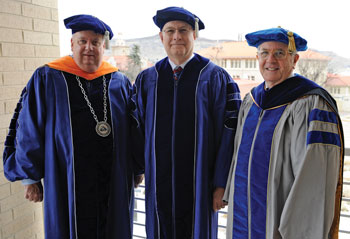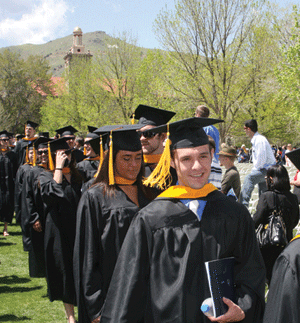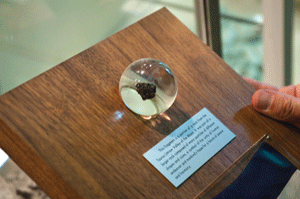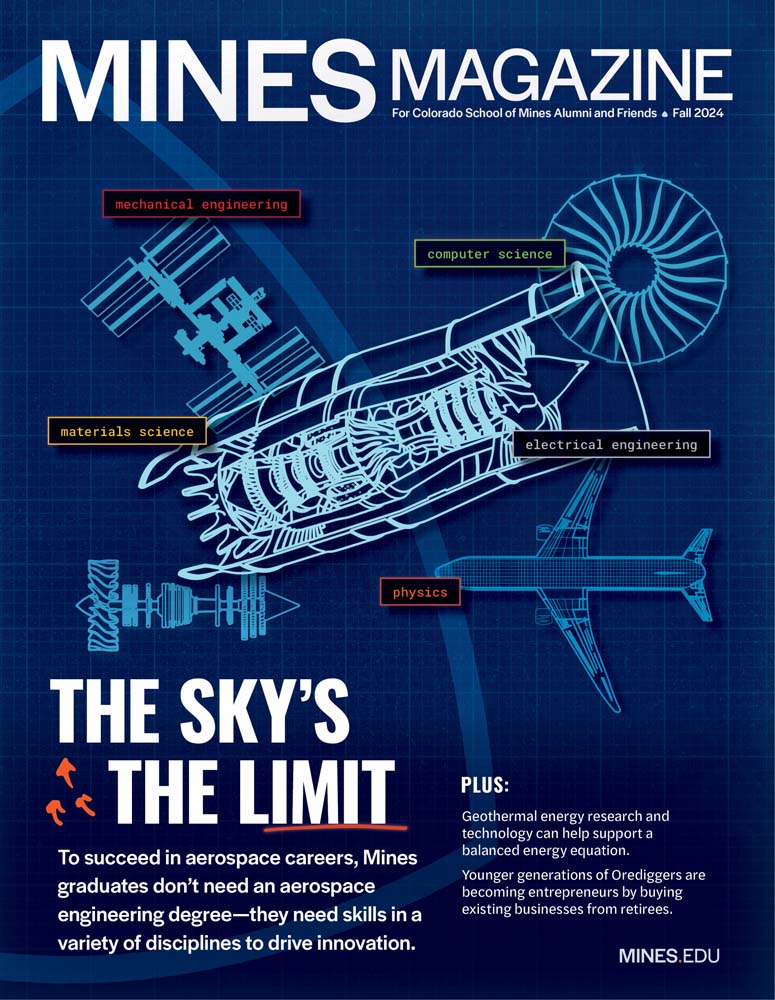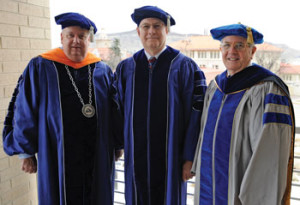
President Bill Scoggins, Joe Gray and Richard Truly all participated in December’s Midyear Convocation in December.
His predictions for their careers in the decades ahead included reference to the past: His own graduation, he said, came a year before the United States put a man on the moon, at a time when a 4-kilobyte core processor was a technological marvel. We’ve seen astronomic growth in raw computational capacity since then, Gray pointed out, but great changes lie ahead. “Capabilities in information management and processing are fundamentally changing the fabric of society.” Speaking of issues like disease management, climate change and energy supply, he said, ”You are going to be able to approach the engineering challenges of your generation at scales and at levels of detail not previously imaginable.”
Achieving this will involve harnessing the intellectual power of colleagues worldwide, he said. “So long as free worldwide information exchange can be maintained, you’ll just need to figure out how to sift through the enormous worldwide noise to find the useful signals to guide your work.”
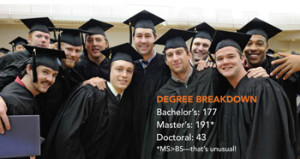 He concluded with three recommendations: “Embrace intellectual diversity. Using knowledge in one domain to solve problems in another is something that has served me well,” said Gray, whose accomplishments in cancer research came with no formal education in the biosciences.
He concluded with three recommendations: “Embrace intellectual diversity. Using knowledge in one domain to solve problems in another is something that has served me well,” said Gray, whose accomplishments in cancer research came with no formal education in the biosciences.
Secondly, “Expose your own ignorance to people who possess the knowledge you need. It is difficult to learn if you don’t let your potential teachers know what you don’t know.”
And lastly, “Have the courage to attempt things that others think impossible. Big things come from bold approaches.”
Watch the entire Midyear Degree Convocation ceremony, including Gray’s speech, and read an

